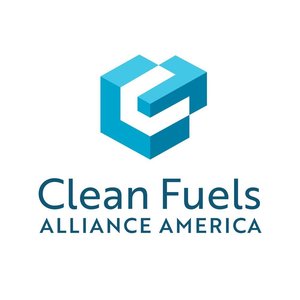Clean Fuels, member companies urge EPA to unleash biomass-based diesel

May 22, 2025
BY Clean Fuels Alliance America
Today, Clean Fuels Alliance America delivered a letter to EPA Administrator Lee Zeldin, urging him to set the 2026 RFS biomass-based diesel volume at no less than 5.25 billion gallons and allow continued growth in the 2027 volumes. Forty-eight member companies signed the letter in support of the requested volumes.
“We ask that EPA without delay set the 2026 RFS biomass-based diesel volume at not less than 5.25 billion gallons,” Clean Fuels and its members state in the letter. “We further urge you to support continuing growth by setting the 2027 RFS biomass-based diesel volume at 5.75 billion gallons.”
“These volumes will support farm security, create jobs and economic opportunity, and further President Trump’s goal for U.S. energy dominance,” the letter continues. “In short, a strong signal from EPA on the RFS will unleash domestic biodiesel and renewable diesel production to resume planned growth and get many Americans back to work.”
Advertisement
Kurt Kovarik, Clean Fuels’ Vice President of Federal Affairs, added, “Renewable Fuel Standard stakeholders are unified in asking for no less than a 5.25-billion-gallon biomass-based diesel volume for 2026 because it accurately represents current domestic production, investments in new capacity, and increasing U.S. availability of feedstocks. Our industry is calling on Administrator Zeldin to make this step change in the RFS volumes to support the biomass-based diesel industry’s growth potential, save U.S. jobs, and boost farm security.”
The letter notes that the U.S. biomass-based diesel industry supports 107,400 jobs and $42.4 billion in economic activity, based on a new study, “Economic Impact of Biodiesel on the U.S. Economy 2024,” conducted by GlobalData on behalf of Clean Fuels.
Advertisement
Related Stories
CoBank’s latest quarterly research report, released July 10, highlights current uncertainty around the implementation of three biofuel policies, RFS RVOs, small refinery exemptions (SREs) and the 45Z clean fuels production tax credit.
The U.S. EPA on July 8 hosted virtual public hearing to gather input on the agency’s recently released proposed rule to set 2026 and 2027 RFS RVOs. Members of the biofuel industry were among those to offer testimony during the event.
The USDA’s Risk Management Agency is implementing multiple changes to the Camelina pilot insurance program for the 2026 and succeeding crop years. The changes will expand coverage options and provide greater flexibility for producers.
President Trump on July 4 signed the “One Big Beautiful Bill Act.” The legislation extends and updates the 45Z credit and revives a tax credit benefiting small biodiesel producers but repeals several other bioenergy-related tax incentives.
CARB on June 27 announced amendments to the state’s LCFS regulations will take effect beginning on July 1. The amended regulations were approved by the agency in November 2024, but implementation was delayed due to regulatory clarity issues.
Upcoming Events










